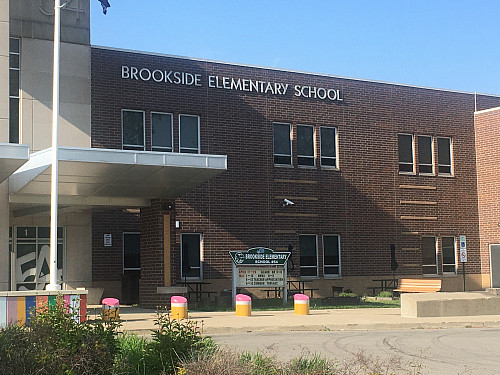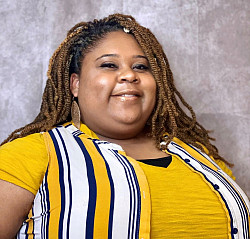School of Education, IPS school make math culturally relevant for young students
By Collaborative for Equitable and Inclusive STEM Learning
May 02, 2023
A new grant-funded initiative created by faculty, staff and graduate students at the Indiana University School of Education in Indianapolis, alongside an Indianapolis Public Schools partner school, is showing signs of success in getting elementary school students excited about math.

The studio supports student learning with small group instruction. It was designed to help students develop math strategies and skills related to problem-solving, critical thinking and metacognition using a culturally responsive approach.
Specific strategies like estimation, determining reasonableness and error analysis were piloted to improve students’ abilities to visualize, talk about and write about their mathematical thinking.
“The goal of the Math Studio has always been to ask students to share their knowledge in a way that feels rewarding and purposeful,” said Ryan Murray, a member of the Collaborative for Equitable and Inclusive STEM Learning team who led the creation of the studio. “Providing students with specific strategies serves as an avenue for them to express their understanding in productive ways.”
Other major contributors to the Math Studio include Da ’Meisha Fleming, the studio’s lead math interventionist and a graduate student in the School of Education’s Urban Educational Leadership/Urban Principalship program, and Telesha Pitts, who teaches at Brookside through a partnership with the John Boner Neighborhood Center. Pitts provided critical daily support to the operations, culture and climate of the studio.
Recent completion of mid-year student assessments has highlighted the Math Studio students’ growth. Many students have said they are more confident and motivated in doing mathematics and feel a sense of community and belonging in the studio.

In the studio, culturally relevant pedagogical approaches to equitable learning are used to focus on the whole child and connect instruction and materials to what students know and experience.
“When students enter the Math Studio, their home lives, cultures and language are valued,” Fleming said. “We work together to see the math that happens in our everyday lives.”
Participating students were selected by school leadership and the Collaborative for Equitable and Inclusive STEM Learning staff, based on performance data.
Brookside Elementary School serves approximately 400 students in kindergarten through sixth grade.
Located near 10th and Rural streets on the Near Eastside of Indianapolis, the school is in a community experiencing gentrification. Much of the work that the collaborative engages in with students and community members is an effort to build social capital and honor the existing neighborhood social and cultural landscapes.
The mission of the Collaborative for Equitable and Inclusive STEM Learning is to support and cultivate equity and inclusion in lifelong learning with technology, especially for learners representing structurally marginalized identities and communities.
As the grant funding comes to an end, the collaborative’s team and Brookside leaders are designing ways to not only sustain the Math Studio for the 2023-24 school year but to include more students in the program.